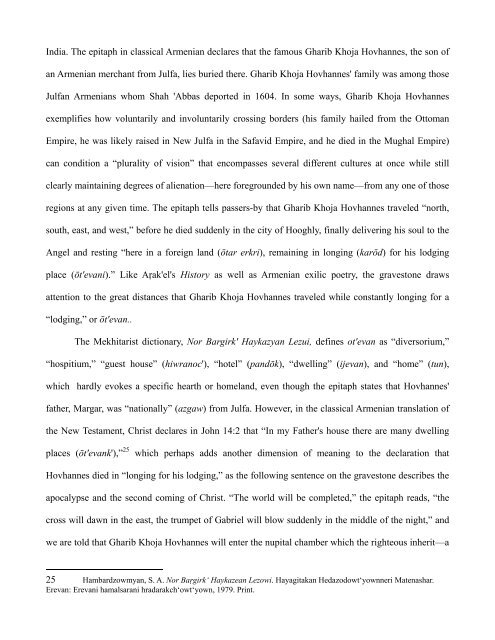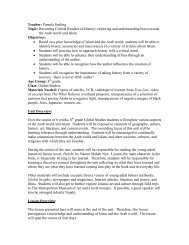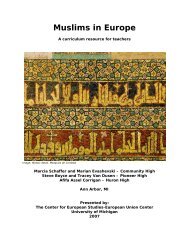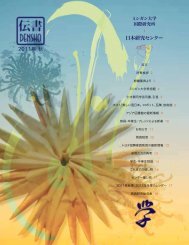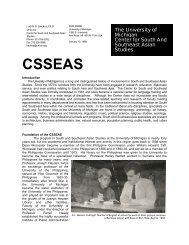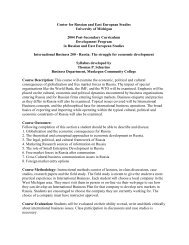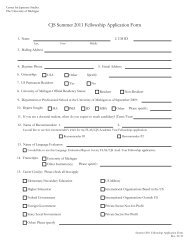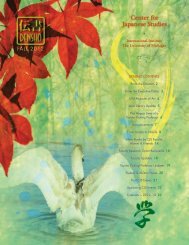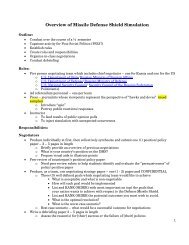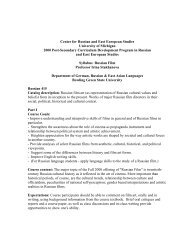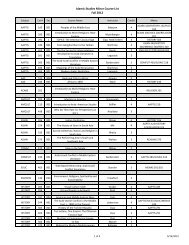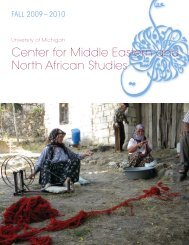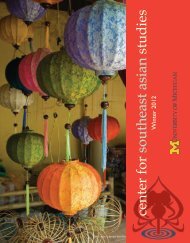The Third Annual International Graduate Student Workshop ...
The Third Annual International Graduate Student Workshop ...
The Third Annual International Graduate Student Workshop ...
You also want an ePaper? Increase the reach of your titles
YUMPU automatically turns print PDFs into web optimized ePapers that Google loves.
India. <strong>The</strong> epitaph in classical Armenian declares that the famous Gharib Khoja Hovhannes, the son of<br />
an Armenian merchant from Julfa, lies buried there. Gharib Khoja Hovhannes' family was among those<br />
Julfan Armenians whom Shah 'Abbas deported in 1604. In some ways, Gharib Khoja Hovhannes<br />
exemplifies how voluntarily and involuntarily crossing borders (his family hailed from the Ottoman<br />
Empire, he was likely raised in New Julfa in the Safavid Empire, and he died in the Mughal Empire)<br />
can condition a “plurality of vision” that encompasses several different cultures at once while still<br />
clearly maintaining degrees of alienation—here foregrounded by his own name—from any one of those<br />
regions at any given time. <strong>The</strong> epitaph tells passers-by that Gharib Khoja Hovhannes traveled “north,<br />
south, east, and west,” before he died suddenly in the city of Hooghly, finally delivering his soul to the<br />
Angel and resting “here in a foreign land (ōtar erkri), remaining in longing (karōd) for his lodging<br />
place (ōt'evani).” Like Aṛak'el's History as well as Armenian exilic poetry, the gravestone draws<br />
attention to the great distances that Gharib Khoja Hovhannes traveled while constantly longing for a<br />
“lodging,” or ōt'evan..<br />
<strong>The</strong> Mekhitarist dictionary, Nor Bargirk' Haykazyan Lezui, defines ot'evan as “diversorium,”<br />
“hospitium,” “guest house” (hiwranoc'), “hotel” (pandōk), “dwelling” (ijevan), and “home” (tun),<br />
which hardly evokes a specific hearth or homeland, even though the epitaph states that Hovhannes'<br />
father, Margar, was “nationally” (azgaw) from Julfa. However, in the classical Armenian translation of<br />
the New Testament, Christ declares in John 14:2 that “In my Father's house there are many dwelling<br />
places (ōt'evank'),” 25<br />
which perhaps adds another dimension of meaning to the declaration that<br />
Hovhannes died in “longing for his lodging,” as the following sentence on the gravestone describes the<br />
apocalypse and the second coming of Christ. “<strong>The</strong> world will be completed,” the epitaph reads, “the<br />
cross will dawn in the east, the trumpet of Gabriel will blow suddenly in the middle of the night,” and<br />
we are told that Gharib Khoja Hovhannes will enter the nupital chamber which the righteous inherit—a<br />
25 Hambardzowmyan, S. A. Nor Baṛgirkʻ Haykazean Lezowi. Hayagitakan Hedazodowtʻyownneri Matenashar.<br />
Erevan: Erevani hamalsarani hradarakchʻowtʻyown, 1979. Print.


